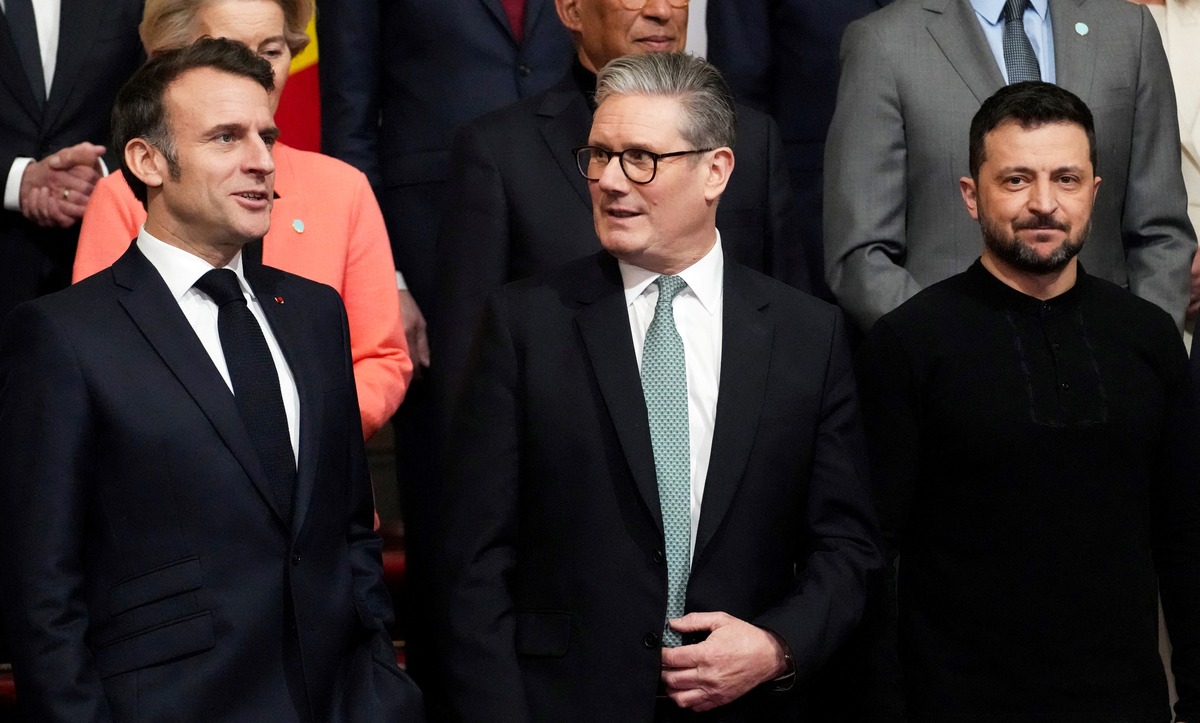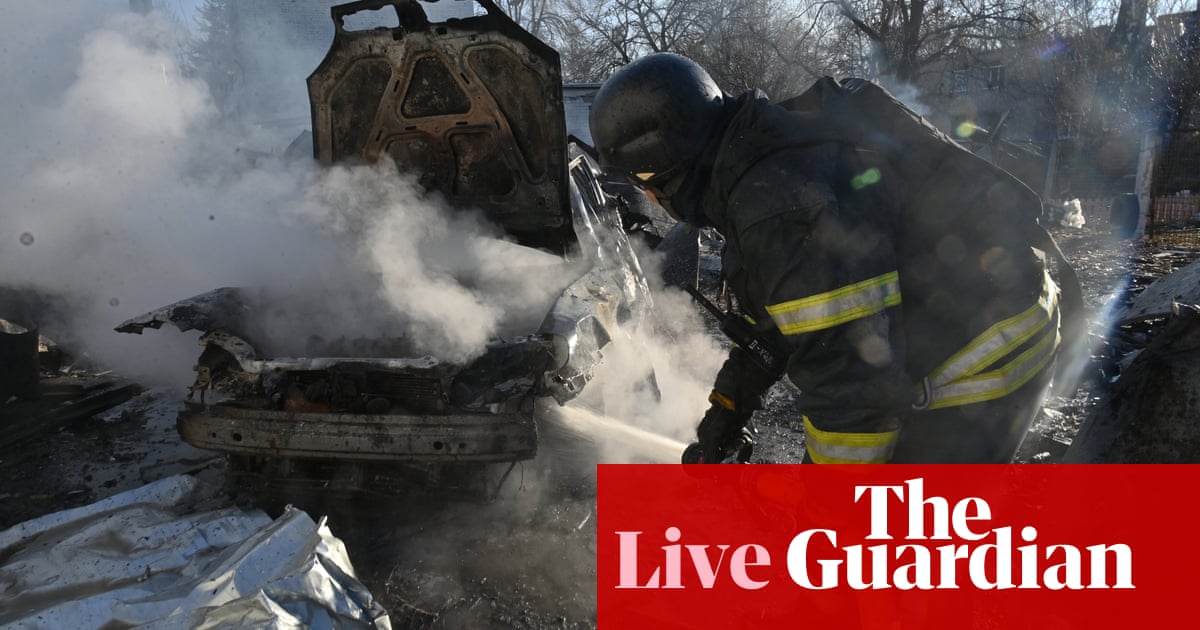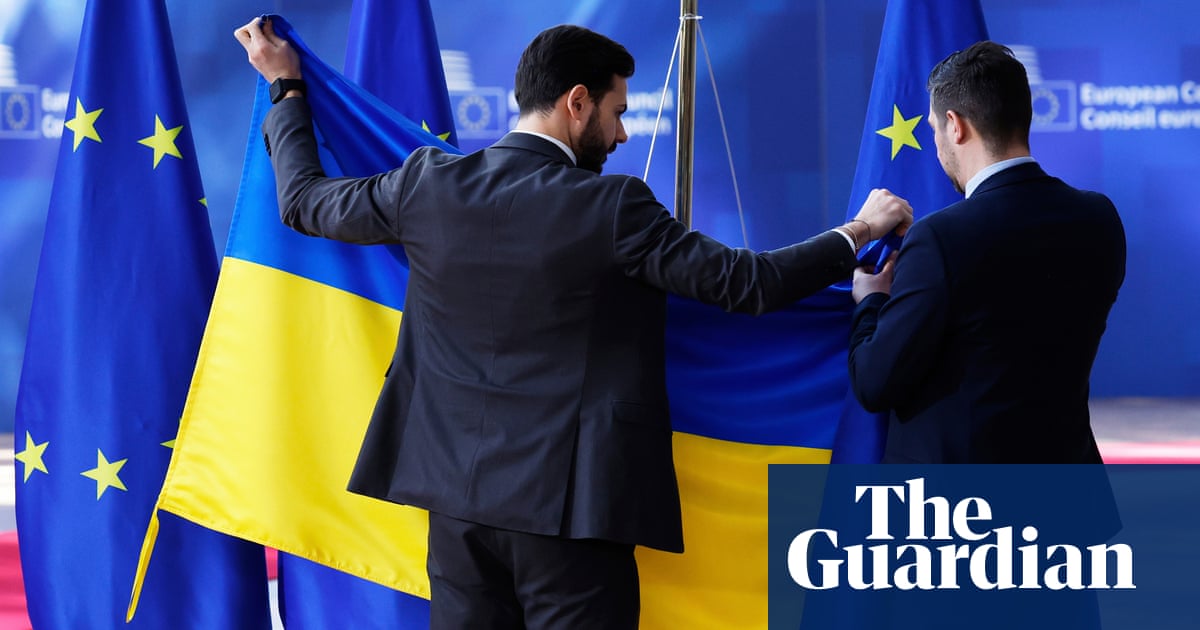Europe’s “coalition of the willing” seeks partial ceasefire in Ukraine

British Prime Minister Sir Keir Starmer and French President Emmanuel Macron hope to bring about a partial ceasefire in Ukraine that would not cover on-the-ground clashes, the French leader has said.
Why It Matters
Starmer had told the BBC early Sunday that London and Paris, along with “possibly one or two others,” had agreed to work with Ukraine on a ceasefire plan to present to the U.S.
But there is still little fixed idea about how a Europe with many diverging opinions will be able to band together to deliver concrete results for Ukraine, after the continent and Kyiv were cut out of U.S. talks with Russia. The U.K. and France have emerged as leading voices, and are Europe’s only two nuclear powers.
European unity has taken on fresh importance as U.S. President Donald Trump and his administration have quickly redefined Washington’s relationship with the continent, spurred on further by Trump and Vice President JD Vance’s extraordinary clashes with Ukrainian President Volodymyr Zelensky at the White House on Friday.
What To Know
Macron told French newspaper Le Figaro in an article published on Sunday that he and Starmer had proposed a ceasefire “in the air, on the seas and on energy infrastructure” that would span one month.
Russia has hammered Ukraine’s energy infrastructure with persistent missile and drone attacks, limiting access to heating, power and water for large parts of the war-torn country. There are deep concerns over how fighting could impact facilities linked to Ukraine’s nuclear power plants, such as substations.
Macron said that it would be “very difficult” for international observers to make sure a ceasefire that covered on-the-ground fighting was being respected.
The front line currently stretches the equivalent of the distance between Paris and the Hungarian capital, Budapest, Macron said. Front-line clashes between Russian and Ukrainian troops cover a distance just shy of 1,000 kilometers (620 miles).
CHRISTOPHE ENA/POOL/AFP via Getty Images
Luke Pollard, Britain’s armed forces minister, told the BBC on Monday that “no agreement” had been reached, but “a number of different options” were being discussed.
Macron’s remarks came as a cohort of European leaders traveled to the British capital for a fresh summit, designed to hash out a continental plan of action to secure a peace deal in Ukraine that was not entirely at Washington’s whim.
Starmer on Sunday unveiled a four-point plan of action to try to end the more than three years of war in Ukraine, which includes maintaining the flow of military aid to Ukraine, ramping up the economic pressures on Russia and having Ukraine at the table at any peace talks.
The British leader said following the conference in central London that a “coalition of the willing” would help defend any deal for Ukraine and provide security guarantees. However, Starmer and Zelensky have both said U.S. backing would be needed for a robust “backstop” in a peace deal with Russia to ensure Moscow did not renege on the terms of an agreement.
But Europe has struggled to agree on much. Starmer said last month he was willing to commit British troops to a peacekeeping force in Ukraine—a declaration quickly criticized by outgoing German chancellor Olaf Scholz as “completely premature.”
Starmer said during a press conference on Sunday that “not every nation will feel able to contribute,” but those that could would “intensify planning now with real urgency.” He did not elaborate on which nations would be involved.
“Europe must do the heavy lifting,” Starmer said. “We’ve made real progress today,” he later added.
The summit came off the back of a warm welcome by Starmer extended to Zelensky, who arrived in London off the back of his disastrous Oval Office meeting with Trump and Vance.
The Republican President accused Zelensky of “gambling with World War Three” in front of the world’s media and broadcasting cameras.
In among various barbed exchanges, U.S. Vice President JD Vance told Zelensky: “Offer some words of appreciation for the United States of America and the president who’s trying to save your country.” Zelensky then departed the White House early.
While Starmer sought to paint a picture of a Europe still on stellar terms with the U.S, he conceded during his appearance on the BBC early on Sunday that he had been “uncomfortable” watching the White House interactions.
What People Are Saying
Starmer said during his post-summit press conference in London that the U.K. was willing to support a ceasefire agreement “with boots on the ground and planes in the air, together with others.”
Zelensky said in a message posted to social media that “as a result of these days, we see clear support from Europe. Even more unity, even more willingness to cooperate.”
What Happens Next
It remains to be seen what type of agreement will materialize from the talks—and how quickly—not to mention how it will intersect with Russian discussions with the U.S.
Related
Zelenskyy reiterates call for air truce after huge Russian attack…
We need Russia to stop attacks, Zelenskyy says, backing calls for truce in air, at seaUkrainian president Volodymyr Zelenskyy has responded to overnight attacks
Europe scrambles to rearm as Trump threatens security guarantees and…
CNN — European leaders have vowed to rearm the continent at historic emergency talks h
Russia launches ‘massive’ attack on Ukraine after Europe rushes to…
Ukraine's energy and gas infrastructure came "under massive missile and drone shelling" by Russia on Friday, a Ukrainian minister said."The energy and gas infra
American severance may be averted, but Europe’s leaders must fear…
With a mixture of regret, laced with incredulity, European leaders gathered in Brussels to marshal their forces for a power struggle not with Russia, but with t












